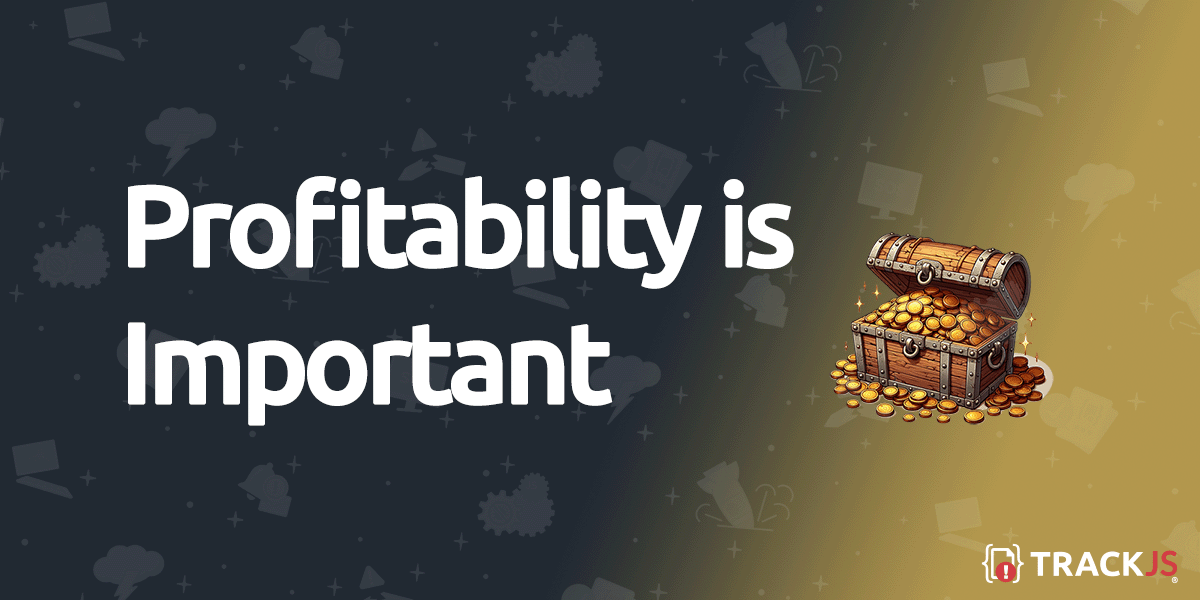A few days ago a memo from logistics company Flexport leaked to the media announcing significant layoffs. Now, a tech company doing layoffs in 2023 is hardly notable. A 20% RIF here and there is almost expected. What is notable is the reason for the layoffs: Flexport is trying to achieve profitability.
Why Profitability Matters
In the leaked letter, Flexport CEO Ryan Petersen says the following:
I’ve spoken to more than 100 of our top customers in my first month back as CEO, and … it’s clear that our customers want us to be a profitable company they can rely on to solve important problems in their supply chain.
So their customers (and presumably prospective customers) are demanding profitability! My how the times are changing.
When you’re looking for a vendor to help manage your supply chain, you want a company with staying power. One who’ll be around in a decade, or two, or three. Changing vendors is always time consuming, expensive and risky. And here Flexport’s customers are telling it: you need to show us you’ll be here in ten years or we don’t feel comfortable doing long-term business with you!
There’s no better signal of company health and longevity than being consistently profitable. That is - making more money than you spend. Not some Wall St. non-GAAP version of profitable mind you, but actual positive net income.
But wait - if Flexport isn’t profitable now, how have they been operating and paying their 3,200 employees these past 10 years?
Straight VC Cash, Homie
According to Crunchbase, Flexport has raised a staggering $2.4 billion in investor funding over 18 rounds of financing. For ten years they’ve paid their employees not with revenue from operations, but from a horde of VC cash.
The CEO even alludes to it in his letter:
With more than $1 billion in net cash, following this change, Flexport is now in a great position to take advantage of the opportunities in front of us to return to profitability as soon as the end of next year.
So they’re still sitting on over $1 billion in cash. What’s particularly notable is that they’ve already burned more than $1.4 billion of their money pile! And the money fire won’t die down enough for profitability until the end of next year.
The Dangers of Free Money
One downside of heaps of VC cash is unsustainable business models don’t fail early. Companies who shouldn’t exist are given millions (or sometimes billions - looking at you Softbank) to prop up bad products or services. This is sometimes called malinvestment.
When interest rates were low and lots of capital was looking for returns - money was sloshing everywhere, even to garbage companies with silly business models (ahem, scooters). Instead of that money helping solid businesses grow sustainably, it distorted markets and led to situations where inefficient or bad businesses crowded their way in and destroyed or prevented otherwise sustainable ones from succeeding.
This trend is so pervasive in VC, that in 2019):
Sixty-four percent of the 100+ companies valued at more than $1 billion to complete a VC-backed IPO since 2010 were unprofitable, and in 2018, money-losing startups actually fared better on the stock exchange than money-earning businesses.
Times Are Changing
Fortunately with the move away from near-zero interest rate environments, the VCs appear more circumspect now. I’ve heard it’s a tough fundraising environment and not the torrential rainstorm of free money it was. The stock market might finally start to care about profitability too.
Behold Splunk!
Here is a company, who incredibly, for it’s 10+ years of existence, never once had positive net income! Shit, they had negative shareholder value for year-end 2023. This means their liabilities exceeded their assets and shareholders were (on paper) underwater. To bathe in the public’s largesse for so long and still pretend to be a sustainable business! Well the music stopped and Splunk couldn’t find a chair.
Yeah, I know the press release made it sound real good - Cisco and Splunk, think of the synergies! Well how about these synergies:
Expected to be cash flow positive and gross margin accretive in first fiscal year post close, and non-GAAP EPS accretive in year 2
That’s a fancy way of saying Splunk ain’t gonna help with profitability. “Non-GAAP EPS accretive in year 2” - words only an M&A lawyer could love.
So anyways, now they’re owned by Cisco [ominous laughter]. If you’re a Splunk customer, I assume you’re already used to the ankle-grabbing prices but just imagine what Cisco is going to do to those enterprise agreements! Add a couple of zeroes to those invoices, that’s one thing they’re gonna do.
Selling Dollars for Dimes
Unprofitable companies like Splunk are a risk. They might go out of business. They might change, remove or destory their product offerings in order to make more money. They might raise prices massively when things get tough. They might even get bought by a stagnant “tech” company who’s best days are far behind it and exists only to extract the last ounce of revenue from enterprise customers.
So, when looking at a vendor for anything - be it logistics or JavaScript error monitoring - you should look for profitable companies first!
TrackJS is Profitable!
See, there was a point to this whole post! TrackJS has been profitable for years! Coming up on a decade now, in fact. We’ve done it by keeping infrastructure costs low (more on that in another post) and keeping our scope reasonable.
We don’t want to be the everything platform - we don’t need hundreds of employees. We make simple tools that solve real customer problems. And we’ll be here for the next ten years.
We’re Bootstrapped Too
Profitability isn’t our only trick, either. We’re also bootstrapped! There is no outside investor looking for big returns. There’s no one with our feet to the fire to hit unrealistic growth targets for the sake of their already-rich LPs.
Not a Patagonia vest in sight.
It’s just the people who work here, making solid salaries and building the best JavaScript error monitoring tool there is.


